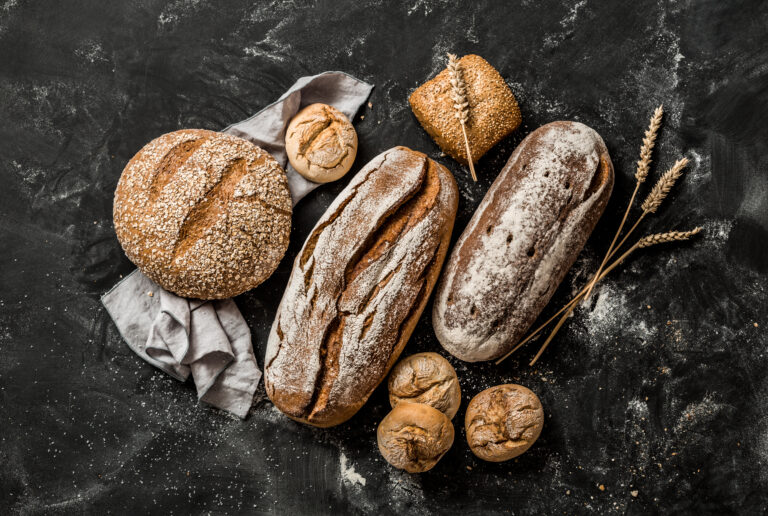Bakery goods are mostly flour-based products such as breads, bagels, pizza, pies, pastries, muffins and frozen doughs. Most bakery products require the development of a gluten network. The Sobatech continuous mixers develop the gluten in a controlled and precise way. The specific mechanical energy (SME) required to correctly develop a product is determined and functions as a constant control for product quality and development.
Low to no gluten containing bakery products such as rye dough and gluten free dough generally require more blending as opposed to kneading.
On a continuous mixing system, each piece of dough has the same age going through the process. As opposed to a batch mixer, the dough does not need to wait to be further processed. This results in a constant consistency product quality.
The four most crucial dough handling properties are stickiness, extensibility, elasticity and resistance to deformation.

